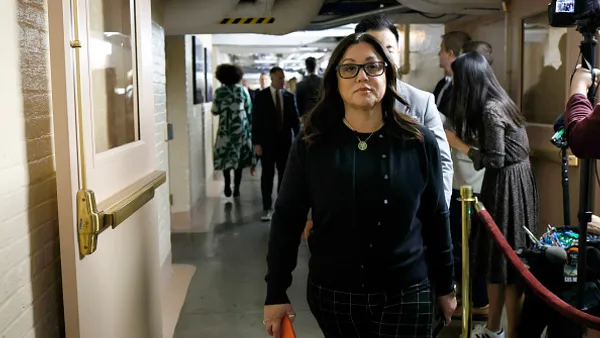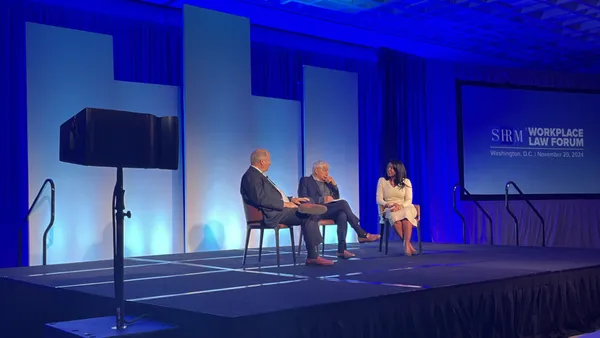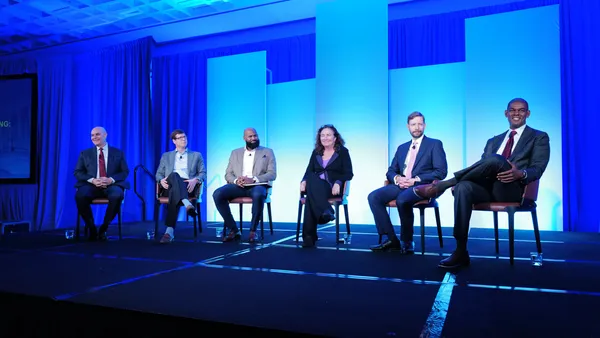Dive Brief:
- Music with sexually derogatory and violent lyrics played constantly throughout the workplace can be a form of unlawful sexual harassment, even when multiple genders are offended, the 9th U.S. Circuit Court of Appeals held June 7 in Sharp, et al. v. S&S Activewear, LLC.
- Former employees of S&S Activewear in Nevada – seven women and one man – alleged the company allowed managers and employees to routinely play “sexually graphic, violently misogynistic” music throughout its Reno warehouse, according to court documents. Despite getting “almost daily” complaints about the music, management allegedly defended it as motivational and allowed it to go on for nearly two years, court documents said. The plaintiffs sued S&S, claiming the music created a sexually hostile work environment in violation of Title VII of the Civil Rights Act of 1964.
- A federal district court determined the complaint failed to state a cause of action and dismissed the suit. It reasoned that the complaint failed to allege the music targeted a particular employee or group of employees and instead claimed both men and women were offended. The 9th Circuit vacated the ruling and revived the lawsuit. It instructed the district court to reconsider the complaint in light of two key principles: “First, harassment, whether aural or visual, need not be directly targeted at a particular plaintiff in order to pollute a workplace and give rise to a Title VII claim. Second, the challenged conduct’s offensiveness to multiple genders is not a certain bar to stating a Title VII claim,” the appeals panel said.
Dive Insight:
Certain practices, such as allowing sexual or racial epithets to be “sung, shouted, or whispered, blasted over speakers or relayed face-to-face,” may “transform a workplace into a hostile environment” and land an employer in court, the San Francisco-based 9th Circuit warned.
“Music-as-harassment” claims have cropped up previously. For example, in October 2022, while the S&S case was on appeal, a former Tesla employee brought a similar lawsuit against the electric vehicle manufacturer. She alleged the company’s HR department and managers ignored “obscene and misogynistic music” playing loudly at a company worksite in Nevada.
Shortly after she filed the lawsuit, the parties agreed to arbitrate the claim, and a federal district court stayed the case until arbitration was concluded or the case settled, according to a court document.
The 9th Circuit, which covers Alaska, Arizona, California, Hawaii, Idaho, Montana, Nevada, Oregon and Washington, isn’t the first federal appeals court to address “music-as-harassment” claims.
It said its ruling aligns with holdings by the 2nd, 4th, 6th and 11th Circuits that sexually offensive, vulgar or derogatory “sights and sounds that pervade the work environment may constitute sex discrimination under Title VII.”
In the 11th Circuit case, a female employee alleged that male co-workers fostered a sexually hostile environment by routinely playing a “crude morning show” from a “central office radio,” and by regularly singing songs about gender-derogatory topics. The 11th Circuit said she could take the case to trial.
These principles also apply to hostile work environment claims premised on race discrimination, the 9th Circuit emphasized. Importantly, “if racial hostility pervades a workplace, a plaintiff may establish a violation of Title VII, even if such hostility was not directly targeted at the plaintiff” and even if “a white worker was also targeted,” it said.
The cases raise another critical issue: Employers may be liable for harassment if they knew — or should have known — about the harassment and failed to take prompt and appropriate action, according to the U.S. Equal Employment Opportunity Commission.
In the 9th Circuit, 11th Circuit and Tesla cases, the plaintiffs alleged they repeatedly complained about derogatory music being played throughout the workplace, but management consistently failed to respond to their complaints.













